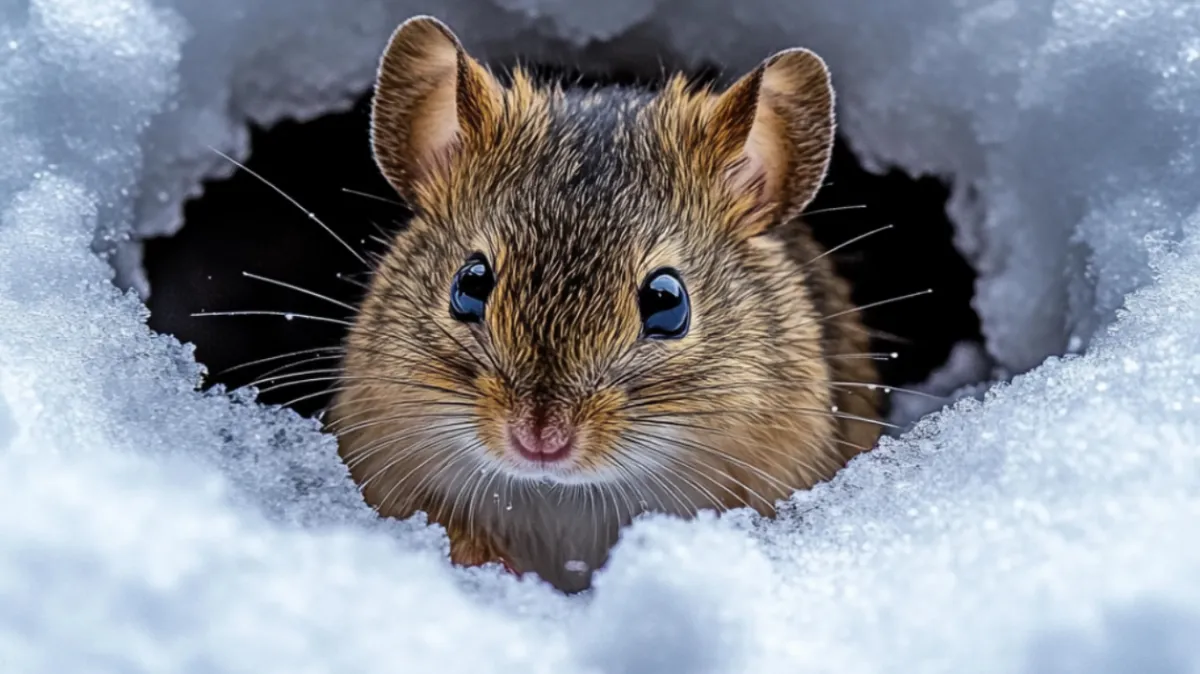
The St. Catharines Pest Journal
The St. Catharines Pest Control Journal

Winter Pest Watch: Keeping Your Home Safe and Secure
Understanding Winter Pests in Southern Ontario
Winter in Southern Ontario brings unique pest challenges as various creatures seek shelter from the cold. Homeowners need to be vigilant about the following pests:
Rodents:
Mice and Rats: These pests find refuge from the freezing temperatures in the warmer parts of your home such as attics, basements, or crawl spaces.
Prevention Tips: Regularly inspect for droppings and signs of nesting, and listen for scratching sounds in the walls or ceilings.
Spiders:
Activity: Less active during cold months, but tend to move indoors before the onset of winter.
Common Types: House spiders, cellar spiders, and sometimes even venomous species that hitchhike on firewood or decorations.
Cockroaches:
Habitat Preferences: Thrive in the warmth and humidity that heating systems provide during winter.
Concerns: Known to proliferate quickly under suitable conditions, posing health risks due to their potential to spread diseases.
Wildlife:
Behavior: These animals may try to nest in less frequented areas like chimneys or attics, looking for warmth and shelter.
Damage Potential: Capable of causing significant structural damage as they build nests and store food.
Proactive Steps to Secure Your Home
To prevent winter pest problems, homeowners should adopt a proactive approach with these strategic actions:
Seal Entry Points:
Importance: Most critical step in pest prevention.
Action Items: Inspect and seal cracks, gaps, and openings in the foundation, windows, and doors. Pay special attention to areas where utilities enter the home.
Proper Insulation:
Benefits: Keeps pests out and improves energy efficiency.
Areas to Insulate: Focus on attics, basements, and crawl spaces. Use materials like foam board, fiberglass, or spray foam where applicable.
Food Storage:
Pest Attraction: Pests are drawn to food sources.
Best Practices: Store food in airtight containers, regularly clean kitchen areas to remove crumbs and spills, and manage pantry items to minimize attractions.
Garbage Management:
Risks: Improperly managed waste can attract rodents and wildlife.
Recommendations: Use bins with tight-fitting lids, store waste containers away from the house if possible, and ensure regular disposal to avoid accumulation.
Common Signs of Pest Infestations
Identifying a pest problem early can save homeowners from significant damage and health risks. Here are some critical indicators that suggest the presence of pests in your home:
Gnaw Marks and Damage:
Wooden Structures: Look for gnaw marks on furniture and structural timbers, which could indicate a rodent infestation.
Wires and Cables: Frayed or chewed wires can be a sign of mice or rats, as they often gnaw on electrical cables to keep their teeth sharp, posing a fire risk.
Food Packaging: Damage to stored food boxes or bags can suggest the presence of rodents or larger pests.
Pest Droppings:
Size and Shape: Mouse droppings are small with pointed ends, while rat droppings are larger and banana-shaped. Cockroach droppings are smaller and may look like pepper flakes.
Location: Check under sinks, along baseboards, in corners, and in cupboards. Persistent presence of droppings indicates an active infestation.
Strange Noises:
Scratching Sounds: Noises from attics, walls, and crawl spaces, especially at night, can indicate rodents moving around.
Buzzing: A constant buzzing sound might reveal a wasp nest or bee hive near or within the walls.
Scurrying: The sound of tiny feet on hard surfaces at night could be a sign of cockroaches or rodents.
Unusual Pet Behavior:
Alertness: Pets may seem particularly alert or interested in areas under appliances, furniture, or other seemingly innocuous areas where pests could hide.
Scratching: Pets scratching more than usual can indicate fleas or mites, which may have also infested areas of your home.
Whining or Barking: If your pets are fixated on a particular area and vocalize more than usual, they may be reacting to the smells or sounds of hidden pests.
Foul Odors:
Musty Smells: A persistent musty, oily odor can be a sign of a large roach infestation.
Ammonia-like Smell: Strong urine smells, especially in enclosed areas, often point to a rodent infestation.
Unexplained Odors: If you notice unexplained odors in certain areas of your home, it's worth inspecting for other signs of pests.
Winter Pest Control Myths Debunked
Here, we debunk some common myths about pest activity during the colder months to help you maintain a pest-free home all year round.
Myth: Pests Hibernate During Winter
Reality: While it's true that some pests slow down, many common household pests like mice, rats, and cockroaches remain active and seek warmth and food indoors. Homes provide the perfect refuge from the cold, making winter pest control crucial.
Myth: Freezing Temperatures Kill All Outdoor Pests
Reality: Most pests have developed survival strategies for the cold. For example, ants enter a state of dormancy inside their colonies, often deep underground or within your home’s walls, while some insects lay freeze-resistant eggs.
Myth: You Don’t Need Pest Control in the Winter
Reality: Skipping pest control in the winter can lead to a surge of problems in the spring. Winter is an ideal time to implement preventative measures and manage indoor pests that thrive in the warmth of your heating system.
Myth: Rodents Are Less Likely to Enter Clean Homes
Reality: While keeping your home clean can reduce the likelihood of pests, winter cold drives rodents to seek shelter in any available space, clean or not. The warmth and potential food sources in a well-maintained home can actually be quite inviting.
Myth: Sealants Alone Prevent Pest Entry
Reality: While sealing cracks and openings is a critical step in pest proofing, it must be part of a broader pest management strategy. Professional assessments can identify less obvious entry points and offer more comprehensive solutions.
Myth: DIY Pest Control is Just as Effective in Winter
Reality: Do-it-yourself methods might not be robust enough to tackle winter pest problems. Professional pest control services offer targeted treatments that consider the unique behaviors of pests during colder months, ensuring more effective and long-lasting protection.
Don’t wait for pests to become a problem. Contact Petty Pest Control to schedule a winter inspection in hamilton and secure your home against unwanted guests this season. Ensure your home is a safe haven this winter and all year round with Petty Pest Control—your partner in effective pest management.

Schedule a Pest Inspection
Ready to schedule a pest inspection? Contact us today.

